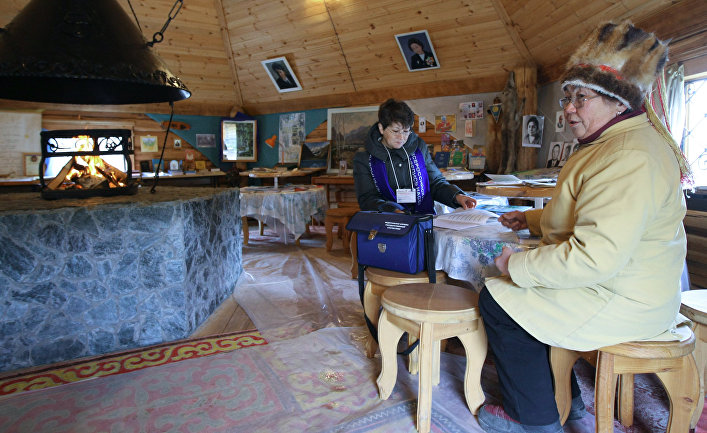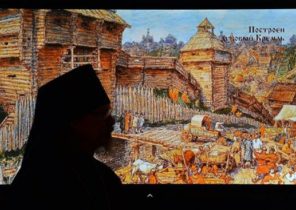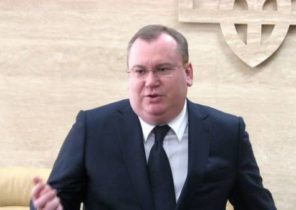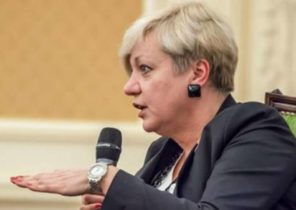
We, Westerners, long accustomed to consider their world safe and secure. Therefore we have no strategy to overcome the unexpected and unsafe situations, says Ulrika Persson-Fisher, anthropologist and associate Professor in the Department of technical Sciences.
“The family who I lived with while I worked on my research, consists of seven members, of which only one has a job, and three alcoholics. Two besides were disabled after they were hit by drunk drivers. They have a completely different mentality, they have a strategy for disaster management,” she says over a Cup of tea in the “Coffee shop Avondale”.
The first time Ulrika Persson-Fisher visited the Altai 12 years ago. She arrived in this Siberian region bordering Mongolia and China to conduct field research for a doctoral dissertation in anthropology. Then she did not know Russian and, in her view, was to study indigenous peoples.
“The literature describes a whole bunch of indigenous peoples of Russia, and all of them are very sympathetic. With this view I and to come. I rode it like she was going to tell them, “Hey, indigenous people, tell me!”” says Ulrika Persson-Fisher, smiling.
When she began to participate in the everyday life of the Siberian families — to cook food, milk cows, and escort children to school — she not only learned to speak Russian, she had learned that they themselves as indigenous do not. To some, this concept does not mean anything, others began to get angry. Ulrika Persson-Fischer realized that this Russian anthropologists have divided the people into groups of the indigenous population, regardless of their own view of themselves.
“My job included metacleavage about anthropology. The Western tradition to decide whom to define as an indigenous people, focusing on how you look at it the people themselves, but not globally so,” says Ulrika Persson-Fisher.
Before your research trip, she studied literature about the Russian indigenous peoples and imagined culture of the Altai Republic will be very different from the culture of the Russian majority. Of course, it turned out that the difference between Altai and St. Petersburg are huge, but not in the sense in which expected Ulrika Persson-Fisher.
“It was like I suddenly went straight into the Soviet era. And everyone said it was better, people at least had electricity and food. The advantages of the collapse of the Soviet Union to the Altai mountains did not come,” she says.
Size Altay — the same as a small European country, but the residents there are only 300 thousand. Most of the region is the wildlife. In Soviet times it was not developed as it was considered worthless territory. No Railways were not built.
“There are only mountains and forests. Hope, the beautiful untouched nature will continue in the future, but tourism needs infrastructure. Besides, the winter here is very cold and summer is hot, this is the most distant from the sea,” says Ulrika Persson-Fisher.
There is very high unemployment, and almost every family is alcoholic. In the village where she lived the longest, there was only one phone, and that worked only sometimes. Even now, the Altai is not fully covered by the network. When Ulrika Persson-Fisher was there, she had experienced an earthquake of magnitude 8 on the Richter scale. It seemed that the ground was gone from under his feet. As soon as the opportunity arose, she called their loved ones that they are not worried, and reported that are alive. However, it appeared that they had no clue about what happened.
“I can’t believe there are places that are still unknown, but they exist.” Ulrika Persson-Fisher believes that material poverty which characterized the life in the Altai, creates a sense of unity, which is not in our society. Families live at the expense of small farms, which can consist of a vegetable garden and a cow. People gather full bags of pine cones that you can try to sell to relatives in other parts of Russia.
 © RIA Novosti | go to photobacteria census 2010 in the Republic of Altai
© RIA Novosti | go to photobacteria census 2010 in the Republic of Altai
Anthropological understanding can be achieved by putting yourself in the place of others, says Ulrika Persson-Fisher. The collection of information through active participation and observation — a method that requires time, money and great personal sacrifice on the part of the scientist. Life far from civilization in many respects a challenge, but the results she obtained through research in the Altai, Ulrika Persson-Fisher could not get in any other way.
“You need to use yourself as a tool, you absorb all the skin. And that is why closer to the people.”
This method differs significantly from the conventional approach to scientific research, she said. The natural Sciences are very far from going to the bath and the tea party in the Siberian countryside. However, Ulrika Persson-Fisher now — associate Professor of industrial technology at Ostremsky laboratory. Among other things, she runs the school entrepreneurs, where there is broad use of its Altai experience.
“The entrepreneur must be able to operate in conditions of uncertainty and insecurity. The people in the Altai Republic live in conditions where nothing can be predicted, the experience with them, I use to teach my students to build strategies.
Her students Angstrem also very interested in environmental issues and nature conservation.
Climate change make the world increasingly unpredictable, and the human factor cannot be forgotten, doing industrial technologies. Ulrika Persson-Fisher believes that the Department really appreciates her work.
“They deserve all praise. I had a lot of prejudices about the technology before I got there, but to begin to engage with anthropology, being an engineer, even harder,” she says and laughs.
Anthropology is hardly demanded and well-paid professions, but Ulrika Persson-Fisher says that in neighboring Norway, things are different. Anthropology is studied in the public schools, and large businesses hire anthropologists because of their unique knowledge to help you understand what is happening between groups of people.
“Anthropology is needed, because it brings understanding. This makes it possible to achieve the best contact between people and tolerance. I at first it seemed unreasonable that my research assistant in the Altai laid out five monthly salaries for a pink suede jacket. But from her point of view it was rational in a society where everything is achieved more social contacts than money, appearance is one way to tie these contacts. This is one of the few things that they can somehow influence,” said Ulrika Persson-Fisher.
This understanding, she said, is necessary in all scientific fields. Just to ask, why is the research assistant bought such an expensive jacket, it would be enough. But by studying the everyday life of the Altai mountains for a long time and become acquainted with the people who live there, Ulrika Persson-Fisher was then able to do an analysis, through which she understood the connection between cultural and material.
“It’s called a holistic perspective. If you study the subject in all integrity, you can see things that remain invisible when you see only one piece of pie,” she explained.







